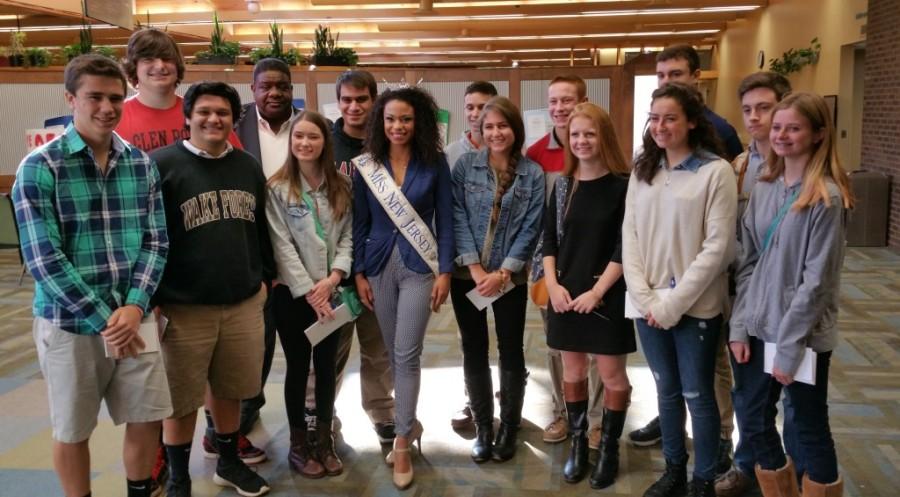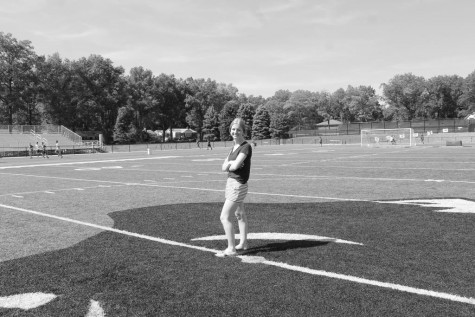Where’s the sense in censorship?
Photo Credit: Jason Toncic
Glen Rock High School students at Rutgers University for the GSSPA’s Student Press Day where the students learned about student journalist’s rights.
February 23, 2015
American citizens have freedom of speech—right?
This may not be the case in New Jersey public schools, where administrators have limited students’ freedom of speech.
In 2013, two students from Glen Rock High School wrote an article about underage drinking at their school’s homecoming dance.
Yet the administrators of the school censored the article by taking out quotes and essential information, citing that police officials had the wrong information.
High school is intended to prepare young adults to be successful in the real world, but censoring a newspaper cannot teach students to write truthful news. Instead, it teaches them to write articles that reflect positively on their schools.
School administrators need to give students the right to fulfill their responsibility through truthfully reporting the news.
Glen Rock High School’s Policy Code 6145.3 states that “the board of education reserves the right to exercise prepublication control over school-sponsored publications through administrative staff and faculty.”
The school district also can put restrictions on a newspaper if deemed “inconsistent with the basic education mission” and “when censorship action is reasonably related to legitimate educational concerns.”
By the time supervisors had finished censoring the article, the homecoming dance article read like a positive experience for both students and chaperones.
How can students learn to write about the truth when they expect someone to expurgate controversy from their writings?
It was the 1988 Hazelwood School District v. Kuhlmeier court case that prefaced this situation. School officials were permitted to censor students’ articles on teen pregnancy and divorce because they weren’t published in a “public forum for student expression.”
These limitations became the new precedent for student reporting.
And although ten states and the District of Columbia have enacted additional legal protections against prior review for student journalists, New Jersey is not one of them.
For Kylie Sposato of Pemberton Township High School, her crusade for freedom of the press came unexpectedly. Sposato wrote an opinion article about prohibited cigarette smoking in her school’s bathrooms. She researched the negative effects of secondhand smoke and interviewed school security guards and students to back up her point of view.
A school administrator canceled the printing of her article because it was “inappropriate.”
Elsewhere in New Jersey, Northern Highlands Regional High School dealt with a similar issue of censorship. Adelina Colaku, former editor-in-chief of The Highland Fling, had an article removed from publication, as well.
Colaku wrote an article about the conflicts between supervisors and superintendent for the March issue of The Highland Fling, but the administration vetoed her article.
Student journalists, though, are not without allies.
The Student Press Law Center (SPLC) plays a major role in helping these high school students with their cases. According to their website, they are “an advocate for student First Amendment rights, for freedom of online speech, and for open government on campus.”
The SPLC offers all legal assistance to students without charge.
Yet students fear fighting the administration because their advisers can get penalized for supporting the student journalist. In Colaku’s situation, her adviser was released from his position.
In an environment purportedly established to prepare students for the real world, it is of gross negligence to practice censorship in the very field that thrives upon truth. The state of New Jersey needs a law protecting students’ freedom of speech.




